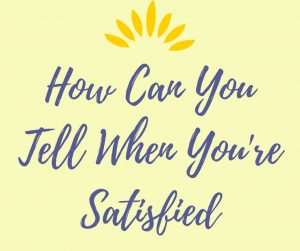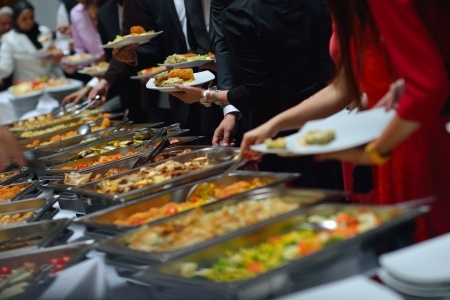Ditch the Distractions—The Downside to Distracted Eating
 Do you find yourself scarfing down breakfast on your drive to work, or sitting down in front of the TV to enjoy your dinner?
Do you find yourself scarfing down breakfast on your drive to work, or sitting down in front of the TV to enjoy your dinner?
If the answer is yes—you’re probably a victim of distracted eating! With the hustle and bustle of our everyday lives, it can seem nearly impossible to sit down in silence with no distractions for a proper meal.
However, there have been several studies looking at the impacts of distracted eating. From overeating to not remembering what and how much you ate—the consequences to what seems insignificant can be serious.
To help ditch the distractions, it’s time to look toward mindfulness.
What Distracted Eating Looks Like
Engaging in distracted eating is the norm of our society today.
Do any of these circumstances sound familiar?
- Eating breakfast in the car on the way to work
- Eating lunch while seated in your cubical or desk
- Scrolling through your phone while eating your mid-day snack
- Watching a television show or movie during dinner time
These are all prime examples of what is known as “distracted eating”.
I myself have fallen into the trap of distracted eating…I’ll share this story on my Live Training today. Access it HERE or HERE at 12:15 pm EST.
Definition of Distracted Eating
The “intentional consumption of a meal while engaged in a secondary activity to the extent that the significance or memory of the meal is diminished or forgotten completely.” (Reference: https://faseb.onlinelibrary.wiley.com)
With the hustle and bustle and fast paced environment many of us live in—taking time to sit down and properly enjoy a meal is often thrown to the wayside. And, our society praises busyness, hustle culture and being “productive” at all hours of the day no matter what. Even when people seem to have time in their routine for a proper meal—the distractions still seem to pop up like scrolling through Instagram or Facebook or watching TV.
What the Studies Show
Many studies have looked at the impact of eating while distracted. The concluding results are as follows.
Those who eat distracted are more likely to…
- Eat faster, and more food than intended.
- Can’t remember what or how much you ate.
- Snack on more foods later on or plate more food than you’d usually eat.
- Feel significantly less full at the end of a meal.
These kinds of results make total sense because along with your hunger and fullness cues—attention and memory also play a role in the eating experience.
Your memory of what you ate and how much you ate will likely be impacted if you are eating while distracted. This usually results in eating more at your next meal or snacking because you have left your previous meal unsatisfied.
Although eating while distracted could mean overeating and feeling less satisfied after a meal—it also takes away from the enjoyment and pleasure the eating experience usually brings.
It’s time to ditch the distractions and focus on the meal in front of you. And while I get that eating without any distraction is possibly impractical—it’s all about taking baby steps in the right direction.
Tips to Reduce Distracted Eating
(1) Put your phone or computer in another room while you’re eating.
(2) If engaging in conversation, put your fork down periodically as a reminder to focus on the food in your mouth.
(3) Eat your meals at a table versus in the den or at your desk.
(4) Plan time for your meals—this will ensure you have plenty of time to enjoy the eating experience.
(5) Check in with your hunger and fullness throughout the meal to minimize autopilot eating.
How will you reduce distraction at your next meal? Let me know in the comments below!







